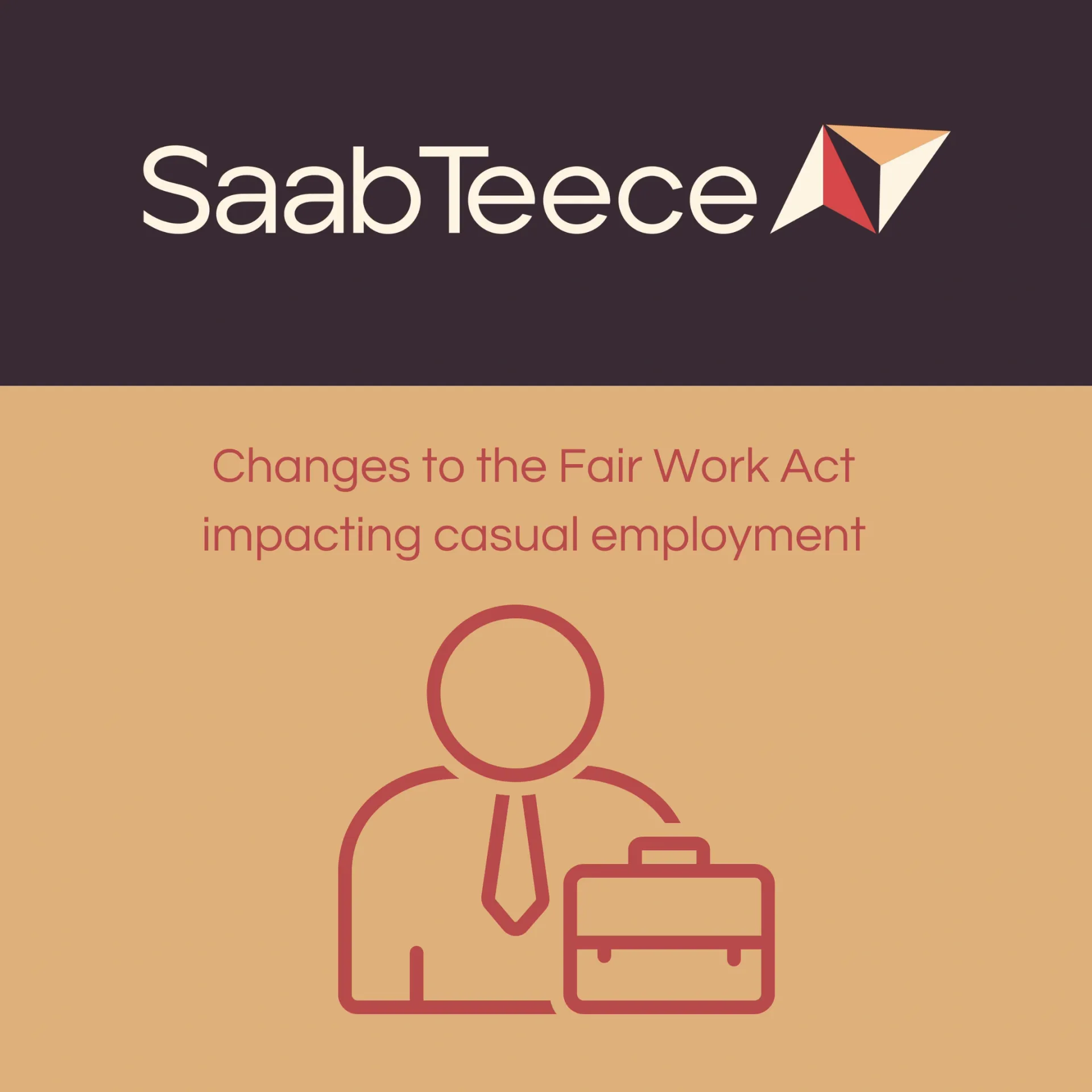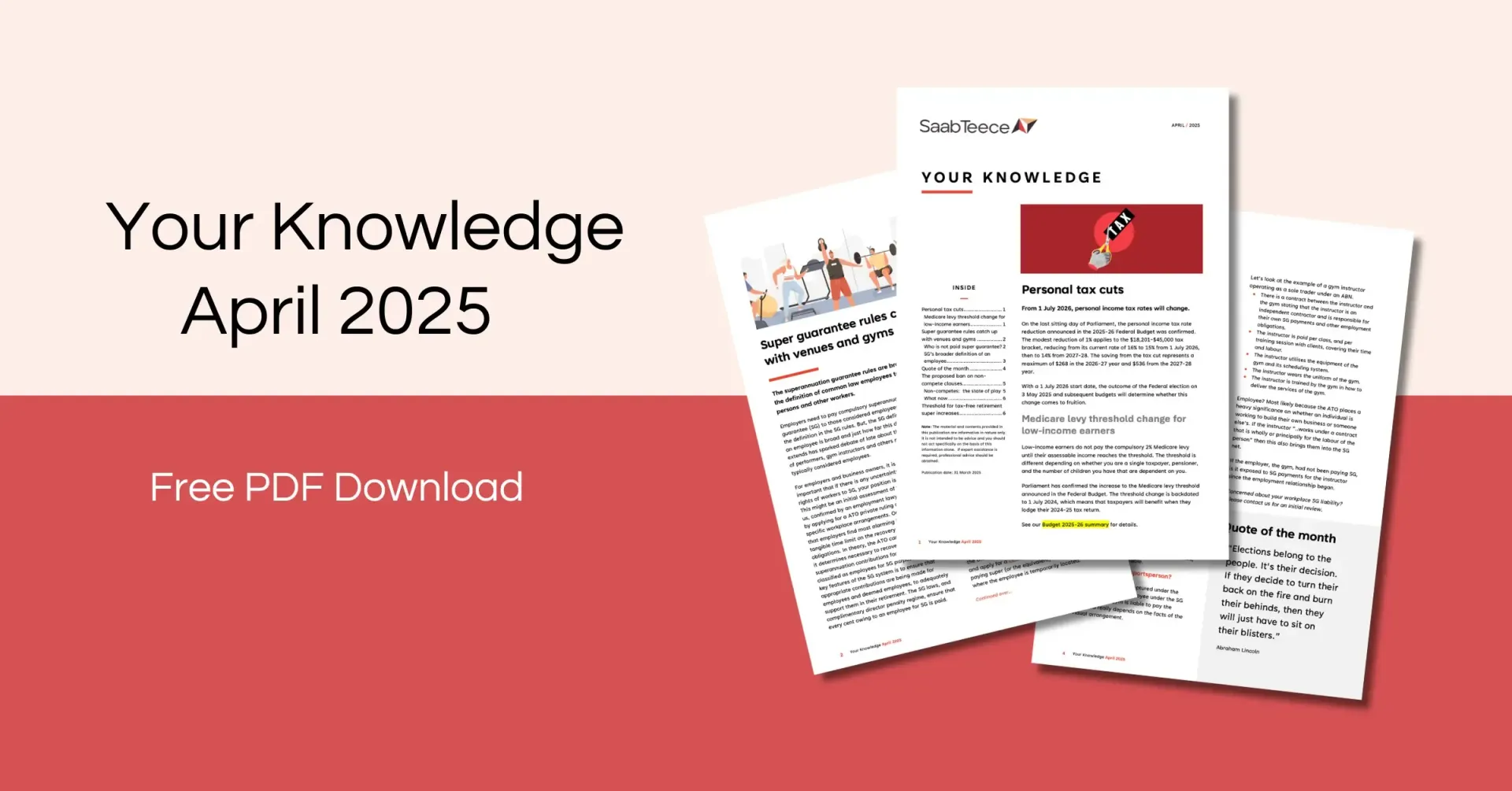Important Information For Employers Of Casual Employees
The Fair Work Act 2009 has been changed to give employers and employees more certainty about casual employment.
There are 5 key changes:
1. A clear, legal definition of a casual employee.
A casual employee is someone who accepts an offer for a job knowing that there is no firm advance commitment to ongoing work with an agreed pattern of work.
2. A right to convert from casual to permanent employment.
This does not apply to small businesses (fewer than 15 employees).
This right is called the ‘casual conversion’ and forms part of the 11 minimum employment standards in the National Employment Standards (NES) that must be provided to all employees.
Under this right, employers must assess all casual employees once they have been employed for 12 months. The employer must either offer to convert the employee to permanent employment or give written reasons why not.
A casual employee is eligible to receive an offer if they:
- have been employed by their employer for 12 months.
- have worked a regular pattern of hours on an ongoing basis for at least the last 6 months.
- could work these hours as a full-time or part-time employee without significant changes.
The casual employee can either accept the offer or decide to remain a casual.
Casual employees can ask to convert to a permanent role if they are eligible. This request can be made every 6 months.
Employers do not need to offer a casual employee a permanent role or accept their request for a permanent role if they have reasonable grounds not to. These reasons must be based on facts that the employer knows or can reasonably foresee. Employers must write to the employee and give these reasons.
Reasonable grounds can include that in the next 12 months the employee’s:
- position won’t exist.
- hours of work will significantly reduce.
- days or times of work will significantly change which they can't accommodate within their available days or times for work.
Reasonable grounds are not limited to these and other may apply that are particular to the employer circumstances.
3. A new Casual Employment Information Statement.
Employers must provide their employees with a copy of the Casual Employment Information Statement.
They must also continue to provide all employee (casual, part-time & full-time) the Fair Work Information Statement.
4. A simpler legal process for casual conversion disputes.
Where an employer decides not to offer a permanent role, or the employee decides not to accept a request for conversion to a permanent role, and a casual employee disagrees with the decision, there are steps they can take.
If the employer and employee are covered by an enterprise agreement, award, contract of employment, or other written agreement that includes a dispute resolution process that can deal with the dispute, they should follow that process to resolve a dispute about casual conversion.
Where a dispute resolution process does not exist, the first step the employee should take is to discuss the decision to not offer, or to refuse the request for, permanent employment with their employer. If this does not resolve the issue, the employer or employee can contact the Fair Work Commission.
An employee may also seek to have their concern resolved by a court. For certain types of disputes about casual conversion, they can access a small claims process within the Federal Circuit Court. This means the concern can be heard and resolved faster and cheaper than going through other court channels.
5. A new rule about offsetting casual loading in court disputes about entitlements.
An employee can apply to a court to make a decision about their employment status, if their employment is described as casual but they believe it is not.
If a court determines they are not a casual, the employer could be asked to pay any leave entitlements the employee did not receive.
Before, it was not clear whether casual loading payments the employer had already paid could be ‘offset’ against any amount owed to an employee.
Now, the courts must recognise identifiable casual loading payments and deduct them from any amount owed to the employee.
For more information, please go to the Fair Work Ombudsman.
Recent Posts









